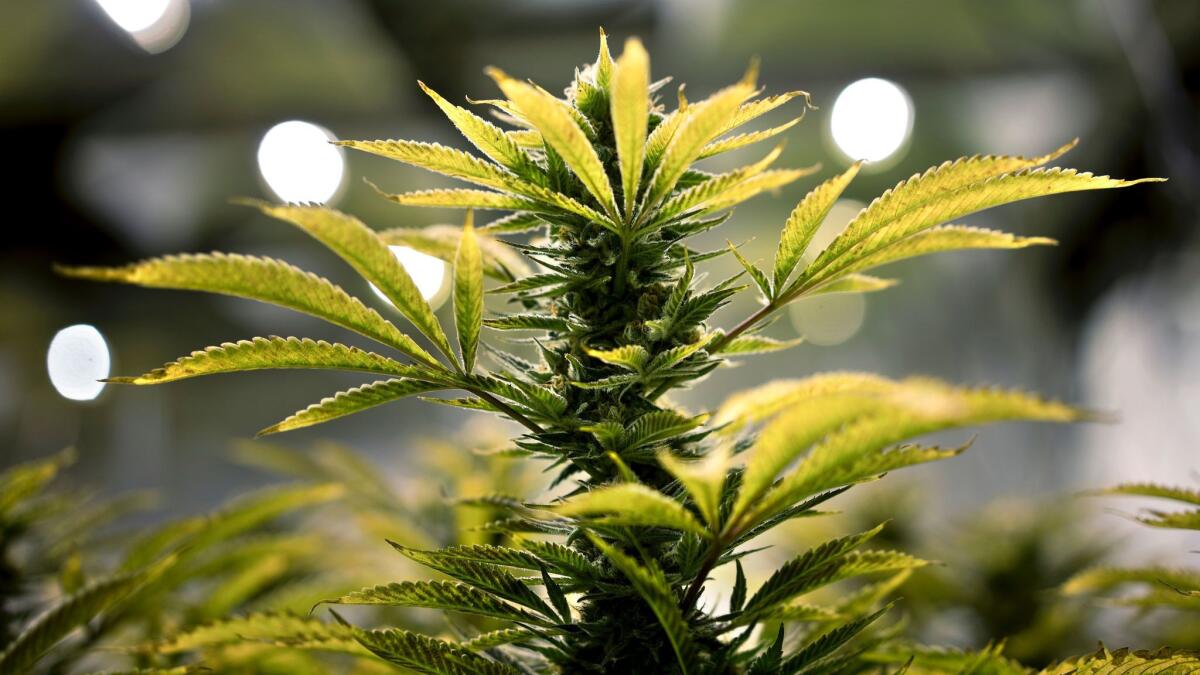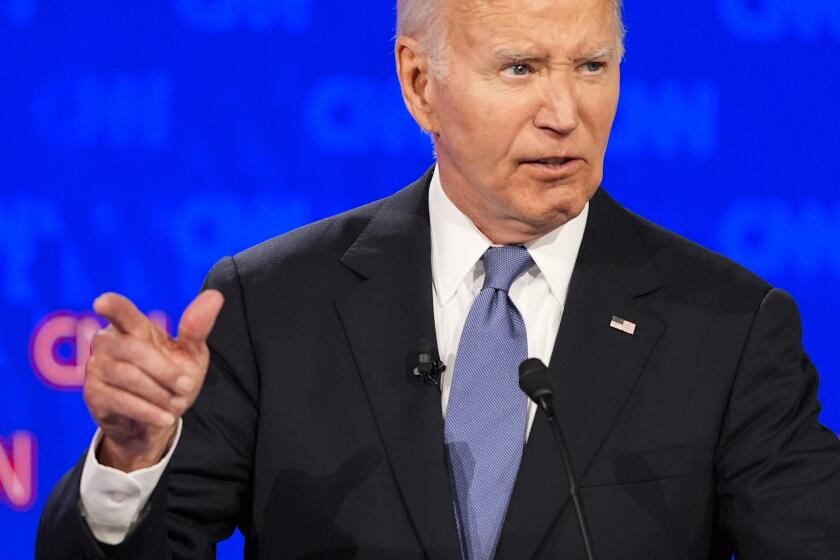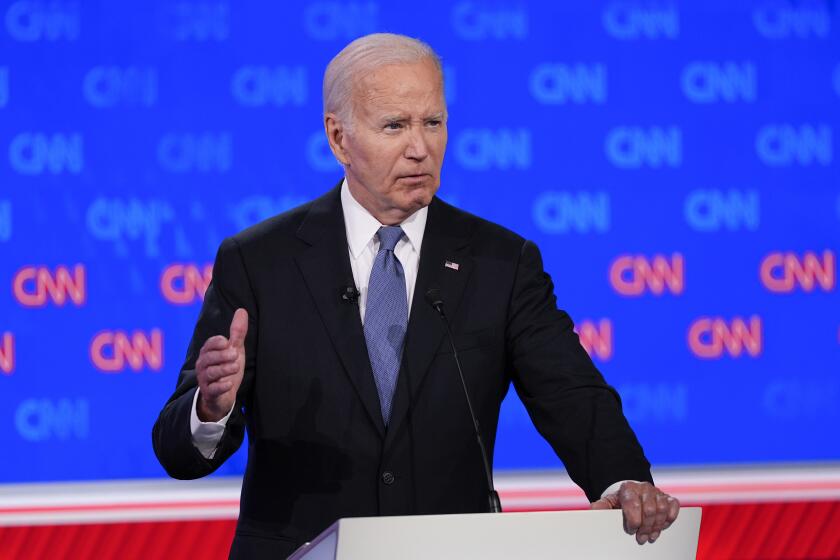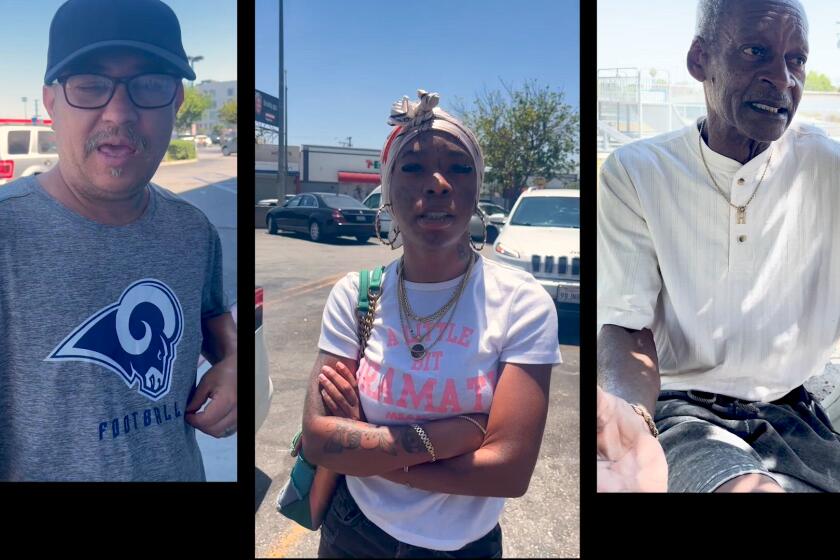Californians vote to legalize recreational use of marijuana in the state

Voters on Tuesday approved Proposition 64, making California the most populous state in the nation to legalize the recreational use of marijuana.
The approval of the ballot measure creates the largest market for marijuana products in the U.S. It comes six years after California voters narrowly rejected a similar measure. Activists said passage would be an important moment in a fight for marijuana legalization across the U.S.
“We are very excited that citizens of California voted to end the failed policy of marijuana prohibition,” said Nate Bradley, executive director of the California Cannabis Industry Assn. “Proposition 64 will allow California to take its rightful place as the center of cannabis innovation, research and development.”
Discouraged law enforcement officials said they will closely monitor implementation of the ballot measure.
“We are, of course, disappointed that the self-serving moneyed interests behind this marijuana business plan prevailed at the cost of public health, safety, and the wellbeing of our communities,” said Chief Ken Corney, president of the California Police Chiefs Assn.
Live updates from the day after the 2016 election »
“We will take a thorough look at the flaws in Proposition 64 that will negatively impact public health and safety, such as the initiative’s substandard advertising restrictions and lack of prosecutorial tools for driving under the influence of marijuana, and begin to develop legislative solutions,” Corney added.
Proposition 64 would allow Californians who are 21 and older to possess, transport, buy and use up to an ounce of cannabis for recreational purposes and allow individuals to grow as many as six plants. The measure would also allow retail sales of marijuana and impose a 15% tax.
Although the measure’s passage would immediately allow adults to possess and grow marijuana, there may not be places to legally purchase it for some time.
The measure only allows non-medical marijuana to be sold by state licensed businesses, and it gives the state until Jan. 1, 2018, to begin issuing sales licenses for recreational retailers.
With financial support from former Facebook President Sean Parker and New York hedge fund billionaire George Soros, the campaign was able to raise close to $16 million, about 10 times the money brought in by the opposition.
“It’s disappointing that big marijuana and their millions of out-of-state dollars were able to influence the outcome of these elections,” said former Rep. Patrick Kennedy, an advisor to the opposition group SAM Action. “We will continue to hold this industry accountable, and raise the serious public health and safety issues that will certainly come in the wake of legalization.”
However, Lynne Lyman, of the pro-legalization Drug Policy Alliance, said the ballot measure in California is the “gold standard” for other states should legalize pot.
California voters reject measure to repeal death penalty, approve plan to expedite it »
“The new law focuses on undoing the most egregious harms of marijuana prohibition, which have disproportionately impacted communities of color,” she said, adding it will be “protecting youth by preventing access to marijuana
Lt. Gov. Gavin Newsom was a leading voice for the campaign, arguing that the national “war on drugs” has failed while disproportionately hurting minority residents and wasting law enforcement resources.
California had led the way 20 years ago by legalizing medical marijuana use in the state.
“I think it’s the beginning of the end of the war on marijuana United States,” Newsom said in an interview Tuesday night. “I think it will have repercussions internationally, particularly in Mexico and Latin America. And there are a million people who tomorrow can begin the process of clearing their records.”
Proposition 64 was opposed by most major law enforcement groups, including the California Assn. of Highway Patrolmen, the Peace Officers Research Assn. of California and the California Police Chiefs Assn.
Opponents cited problems including teen drug abuse and impaired driving experienced where recreational use was previously legalized: Colorado, Alaska, Oregon and Washington.
ALSO
Florida to become first Southern state with a full-scale medical marijuana program
Before Proposition 64, simple possession of marijuana was already decriminalized
More to Read
Get the L.A. Times Politics newsletter
Deeply reported insights into legislation, politics and policy from Sacramento, Washington and beyond. In your inbox three times per week.
You may occasionally receive promotional content from the Los Angeles Times.







